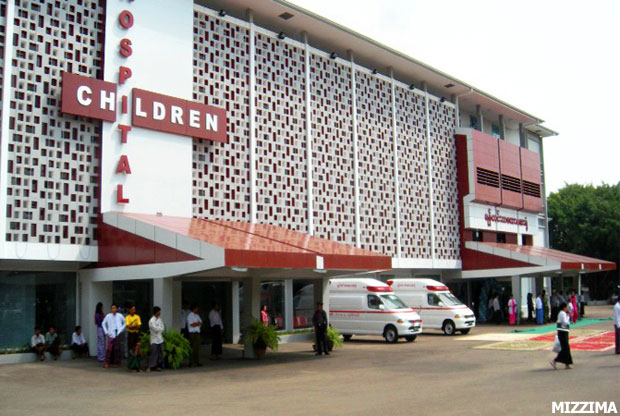Chang Mai (Mizzima) – When Soe Myint opened the car door and gave his pregnant wife a helping hand in front of the emergency department at Rangoon Hospital, a hospital employee took a wheelchair, helped his wife get seated, and wheeled her inside.
He stopped in front of a desk in the Intensive Care Unit, and Soe Myint was grateful for the warm hospitality of the staff.
Then, one of the hospital staff asked for ‘tea money’, a euphemism for a bribe, so he gave him 1,000 kyat (US $1.20).
Then the couple was taken to fill out hospital forms, where another employee asked for ‘tea money’. Soe Myint gave her 500 kyat.
A joke suddenly popped into Soe Myint’s mind: the hospital staff was addicted to tea. He found himself handing out little bribes continuously during the three days his wife was in the maternity ward.

In almost all government hospitals in Burma, if a patient wants a room with, say good ventilation, or cleaner facilities, or more blankets, or other conveniences, it will usually require bribes. And family members or friends who come to the hospital to take care of patients––they too find themselves handing out bribes to get basic services.
Even aides in operating rooms often expect bribes, say patients, of at least 5,000 kyat. Nearly everyone finds it necessary to smooth the way for medical treatment with bribes.
Khin Lay New recalled her experiences with her brother, which led her to believe that government hospitals are rife with corruption.
She said: “After a car accident during the water festival, my younger brother, who is a medical student, was taken to a government hospital. He was basically ignored by the doctors in the emergency room for three hours. At first, they didn’t know that he was a medical student.
‘We complained to the nurses and doctors. Later, a senior doctor learned he was a medical student, and he scolded the nurses and junior doctors for ignoring him and they immediately began giving him treatment’.
She said she believed many people in the emergency room just assumed that most patients in accidents during the water festival were drunk, and they didn’t provide professional treatment. Another problem, she said, is that doctors seem to recommend private laboratories and pharmacies that are very expensive, in many cases because they get a commission from the sales connected to their treatment.
‘They recommended those laboratories and drug stores because they earn money in commissions’, she said. ‘If a patient chooses to go to a different, cheaper place, then they might show their dissatisfaction’, Khin Lay Nwe said.
Under Burma’s current health care system, the government does not provide free, full health care services and patients are required to pay a proportion of their health care costs. But, the proportion is frequently not clear, which leads to confusion and problems in getting the necessary treatment, and is often a factor causing more corruption and asking for bribes.
As Khin Lay Nwe said, ‘In some government hospitals, patients pay only as much as they can pay’, but if they need more services they’re required to pay more bribes, and hospital staff can ask for as much as they want.
They call the bribes ‘tea money’, said Khin Lay New, but ‘it cost much more than the price of tea’.



